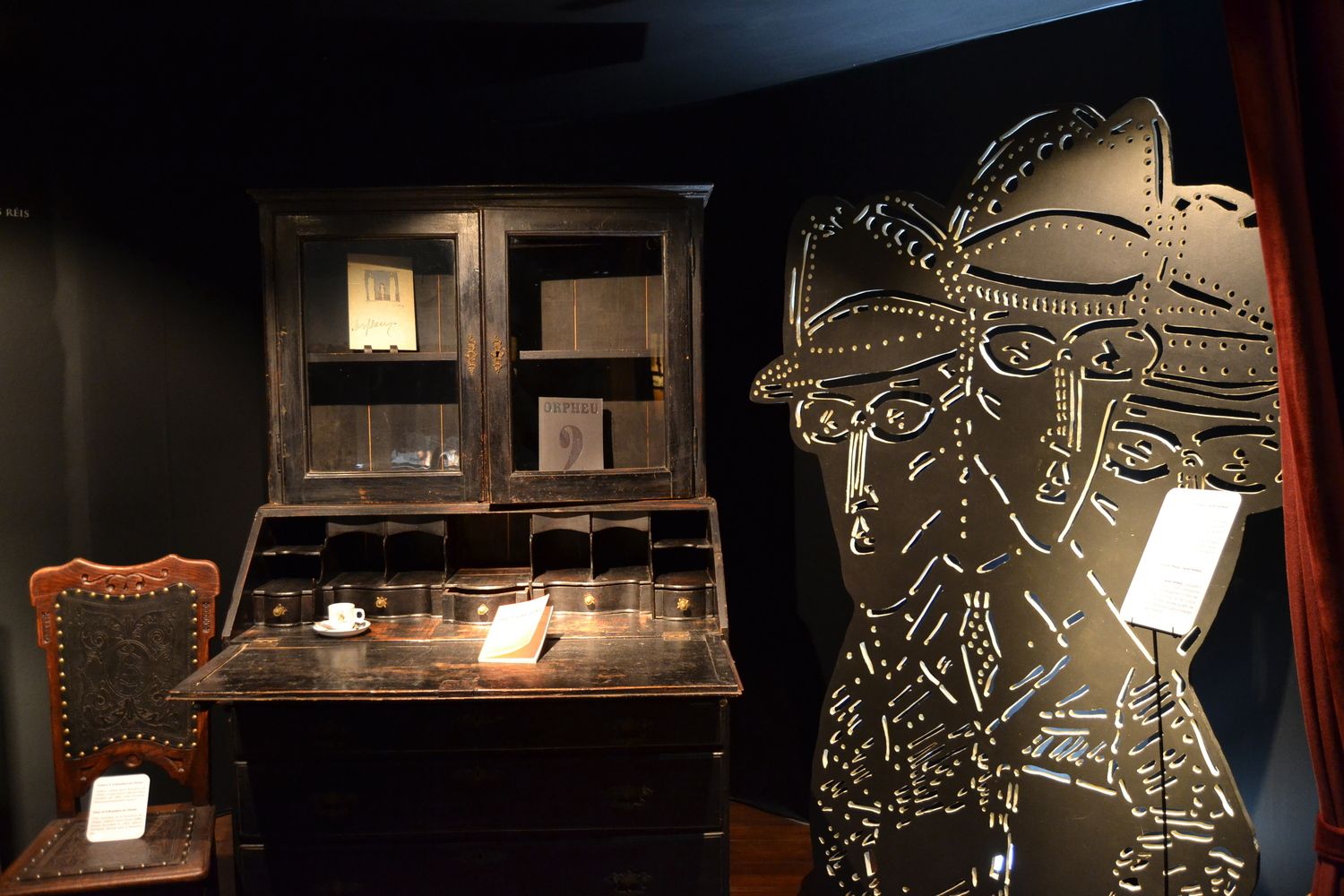This unexpected museum is known as being one of the
most important museums in Portugal and is the largest complex dedicated to this
theme in the world.
The National Bread Museum offers a multi-sensory
experience which focuses on the three-hundred-year-old history of Portuguese
bread. It is in the four thematic rooms that the history of bread is explained
in exhibitions that reveal the history of agriculture, the processing of
cereals, milling, baking and displays ancient utensils, but also the art of
bread and its influence on politics and social and religious issues.

When asked why this unique place attracts so many
visitors, Luisa Paulos from Museu do Pão told The Portugal News that
“Throughout these 19 years we have received thousands of people that when
visiting Serra da Estrela, visited us even though that was not the purpose of
their trip. But here they found much more than a trip to the wonderful world of
bread. From here they took an emotional and unexpected return to their origins
among mills, tools, bags of bread and life stories. From here they took away an
experience that will remain stuck in their hearts forever.” Luisa is not wrong,
the museum boasts fantastic reviews with visitors calling it a great surprise
and one everyone should visit if in the area, especially with children.

Luisa added that “The museum is a multisensory and culturally
enriching experience which is great for all ages because it is a space to
relive and create memories for life. Visiting the Bread Museum gives visitors
that nostalgic feeling. The friendliness with which visitors are received makes
us a unique place to visit as we promise a journey into the memories of the
past.”
The Wonderful Word of the Hermians
This thematic and educational space is dedicated to
younger visitors, here you will find the gnomes of the Hermians tribe,
protectors of the first inhabitants of the Hermínios hills, who invite you on
an imaginary and mythical journey into the past of bread as it recreates 14
stages of bread-making with an interactive exhibition. At the end of the visit,
it's time to get hands dirty and make your own bread, which is baked in the
oven and then feel free to take your creation home. Outside, there is a beautifully
crafted carousel which was uniquely constructed by the same manufacturer as the
Eiffel Tower, with the theme… you guessed it, of bread. It is accessible to all
regardless of age, so you can relive your childhood.

Restaurant
Luisa explained that the restaurant is an “authentic
centre of gastronomic research, where ancient—and noble—traditional Portuguese
flavours are rediscovered.” You can enjoy plenty of rich delicacies in which
the Bread Museum “brings back traditional recipes from our cuisine through a
menu which makes bread the star ingredient.”

Additionally, Fernando Pessoa's writing desk and a
rare first edition of his book, Message (Mensagem), are exhibited here. This
personal object, where the poet found inspiration to write his works was attained
at auction from his family.

Grocery Store
“An expedition into the ambience of old grocery stores
in a space that brings back memories that are part of our history. From wheat
and chocolate bread to oat, plain wheat, and rye breads, and white and yellow
corn bread, there is a whole world of Bread to explore. You can also enjoy
canned fish specialities by Comur, around 30 varieties carefully prepared using
an exclusively handcrafted process, cured meats, jams, honey, Serra da Estrela
PDO cheese from Quinta da Lagoa, spirits, crafts, and our own brand of savoury
and sweet gluten-free products.”

Library Bar
The Library Bar offers panoramic views of the vast
Serra da Estrela Mountain range in which you can enjoy coffee, music and a good
old book. The library offers countless works, maps and important collections of
manuscripts and old books. What makes this space particularly special is that
it is a key national resource for research on the topic of bread. It includes
key documents archived for researchers and students of the theme of bread which
safeguards the value of this heritage.

Regarding the future of the museum, Luisa told The
Portugal News that “We will continue to invest in the promotion of bread as
a universal good and in the promotion of its history and culture. When, on 26
September 2002, we inaugurated the Bread Museum, we were far from imagining
what would follow and the emotions that would be aroused by such a disruptive
project, despite touching on such a universal theme. Even though museums have
always been important instruments for preserving the cultural memory of a
people, almost two decades ago only a small part of the population visited
them. For many people, the Bread Museum was the first museum they ever visited!
Luisa also explained that “At Christmas we will
present our visitors with many novelties and with the usual magic that we
usually do at that time of the year. The Bread Museum is always one of the
greatest references in the country when it comes to celebrating the season in a
special way.”
The entrance fee is five euros for adults and three
euros for children. For more information about the Bread Museum (Museu do Pão)
please visit www.museudopao.pt.
Following undertaking her university degree in English with American Literature in the UK, Cristina da Costa Brookes moved back to Portugal to pursue a career in Journalism, where she has worked at The Portugal News for 3 years. Cristina’s passion lies with Arts & Culture as well as sharing all important community-related news.
















